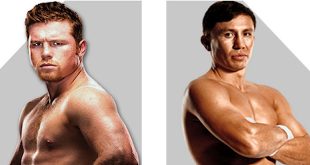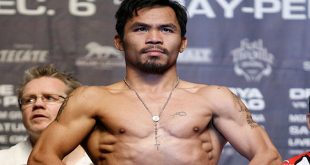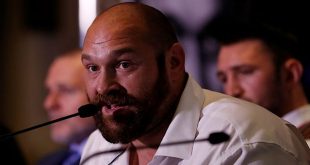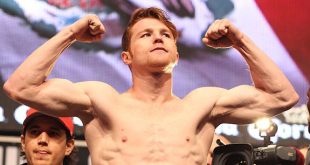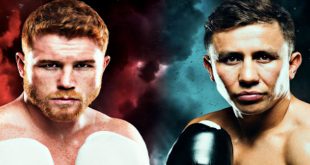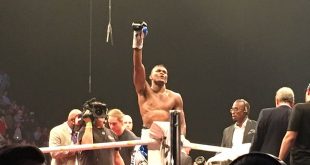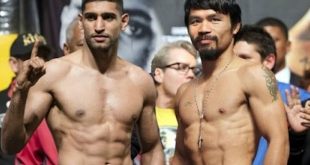No matter how bad they look, like a moth is attracted to the light, heavyweights are always going to get more than their fair share of media attention. Everyone knows the heavyweights suck at the moment. But I want to go back to the eighties, when the division was in a similar situation and talk about the heavyweights that have become known as the “lost generation’ In a three part series, I want to tell the story of the men who made the lost generation of heavyweights. 1980: Larry Holmes was king, but at thirty, was considered as good as he was going to get, and although an honest worker, he was no Ali. Now Ali was coming to the end of an almost two-year retirement, which would result in a comeback defeat to Holmes. But there was hope; a new generation of heavyweights had hit the scene and were ready to take the boxing world by storm!
The lost generation of heavyweights were slightly different from today’s sorry crop. To start off with, a lost generation heavyweight was talented. The problem was this talent would be spoiled by either drug abuse, a lack of conditioning or a combination of both. And because of this, those were even more frustrating times than today. I mean, no one is going to mistake Johnny Ruiz for Ali; but back then one up coming heavyweight by the name of Greg Page, was given that tag, by none other than Muhammad Ali! But that’s for later; the lost generation of heavyweights began in my opinion with Leroy Jones.
Jones was a very talented boxer, and in 1978, he decisioned the rugged Mike Weaver. This fight ultimately lead to the twenty-five fight unbeaten Jones, getting a fight with Larry Holmes. But Jones’ conditioning let him down, although 6’ 5” Jones ballooned from debuting at 228-pounds to fighting weighing as much as 275-pounds! Against Holmes, he was a mere 252-pounds, but a gifted boxer was just no match to Holmes and was blown away in eight one-sided rounds. Jones was no more, he had one fight in 1982, but that was it, the original lost generation heavyweight faded into boxing oblivion; sadly many of his predecessors would not take the same path, and would go on and on.
But now to the most tragic figure of the lost generation, Greg Page. The sad sight of Muhammad Ali dropping a decision in the Bahamas to Trevor Berbick, is one of boxing’s most depressing moments, but in the sad post fight interviews, a ray of hope, a new Ali; yep, and what is more, like the original he is from Louisville, he gets a personal recommendation from the great man himself. On the under-card of the Bahamas bill Greg Page knocked out tough journeyman Scott LeDoux in four rounds to up his record to 18-0 successfully defending his U.S. heavyweight title.
Page followed this up by beating former Ali nemesis Jimmy Young on a twelve round decision in May 1982 to set up an opportunity for Page to gain revenge for Ali against Berbick, but it was not to be as Berbick took Page’s unbeaten record, as he decisioned the next Ali. Page rebounded with a gutsy effort against James Tillis, getting off the floor to win in eight in a defense of his U.S. title. And then, after defeating Renaldo Snipes in an eliminator, Page fought and lost a decision to Tim Witherspoon in a fight for the WBC crown that Holmes had vacated in favor of the IBF.
Page then lost to the then unbeaten David Bey, before as was the crude logic of lost generation boxing, he fought and beat Gerrie Coetzee to win the WBA title with an eighth round stoppage. But as was also the way with the lost generation, he promptly dropped the title to Tony Tubbs by way of fifteen round decision and followed this up with a loss to “Buster’ Douglas. Page was finished as a world-class fighter, but sadly and ultimately tragically, he would go on and on. Initially becoming a decent “named opponent’; he would give respectable but losing efforts to the likes of Bugner, Seldon and Ruddock. But Page just would not quit, this would lead to the tragic fight with Dale Crowe in March 2001, when Page was decked in the ninth round of their Kentucky State championship match, sickeningly his head thudded against the rope/canvas causing a severe brain injury; Page left boxing with a seventy-six fight record including fifty-six wins and a draw.
Tony Tubbs was the next “sure thing,’ but due to the Olympic boycott of 1980, Tubbs missed a chance to show himself to a world audience. But by 1985, Tubbs’ record was 20-0, and he beat his first world-class opponent James “Bonecrusher’ Smith on a ten round decision. To set up an April 1985 clash with WBA champ Page. Although the underdog, Tubbs rose to the occasion to upset Page by fifteen round decision. In January 1986, Tubbs lost his title in his first defense dropping a close majority decision to Tim Witherspoon. After the fight many people criticized Tubbs’ lack of conditioning, he came in at 244-pounds, some fifteen pounds heavier than when he beat Page. Unfortunately for Tubbs it would not be the last time people had issue with his weight.
After the fight, it turned out that Witherspoon failed a drugs test and was mandated by the WBA to give Tubbs a rematch. But the December 1986 rematch was not to be, as Tubbs had to pull out with an injured shoulder. In fact, Tubbs would not fight again until March 1987, when on the Smith vs. Tyson under-card, Tubbs beat tough journeyman Mike Jameson on a ten round decision. The King promoted fighter had a couple more fights on Tyson under-cards before in March 1988, he got his shot at Tyson in Japan. The Japanese side of the promotion were worried that they may have a farce on their hands; so they offered Tubbs a $200,000 bonus for weighing less than 238-pounds,Tubbs came in at 239. And although he won the first round, Tyson soon got to the out of shape Tubbs, nailing him with a vicious body shot/right hand combo, the fight was over in the second.
Tubbs took another year out of the ring, before coming back with a few victories over journeymen, before in November 1989, he beat world ranked NABF champion Orlin Norris by twelve round decision. But the victory would not be, as Tubbs failed a test for cocaine and the fight was ruled a no contest, and the belt given back to Norris. In April 1991, Tubbs, now deemed the tough veteran journeyman fought the young up start Riddick Bowe. In perhaps his finest performance Tubbs used all his undoubted skills to hustle bemuse and frustrate the young Bowe for ten rounds. Sure Riddick had his moments but Tubbs surely had won. But no, the prospect got the gift decision and as a world-class fighter, Tubbs was no more.
Tubbs was shockingly blown out in a round by Lionel Butler in August 1992, but came back slightly by beating Bruce Seldon and undefeated Russian prospect Alexander Zolkin on ten round decisions. Before once again suffering a shock one round KO to Idaho heavyweight Jimmy Ellis, Tubbs would have a kind of last hurrah winning the infamous “peoples choice one night heavyweight tournament’ in December 1993. But that was it for Tubbs, although even now at the age of forty-six he continues to fight, he is nothing more than a name to put on some prospects record, as defeats to the likes of Jimmy Thunder, Zolkin; in their rematch and Brian Nielsen have shown.
Next week, part two: Michael Dokes and Tony Tucker.
 Boxing News Boxing News
Boxing News Boxing News
